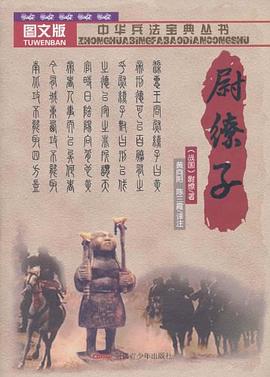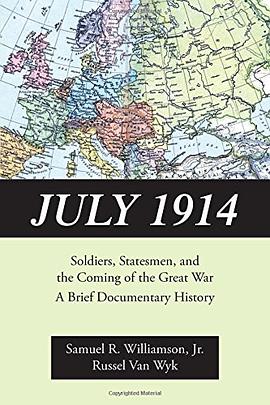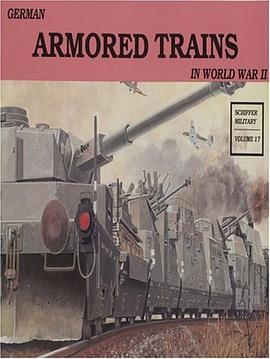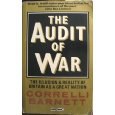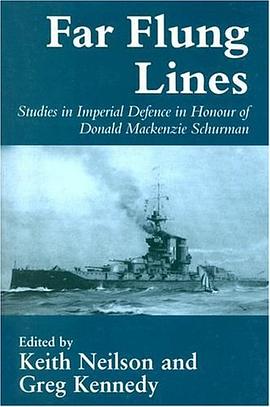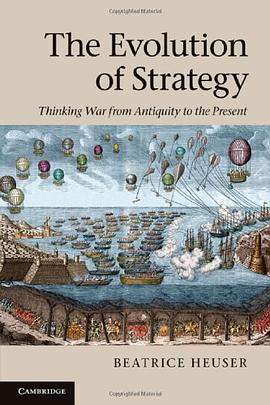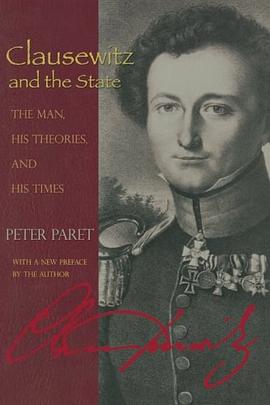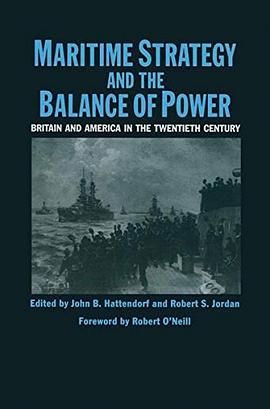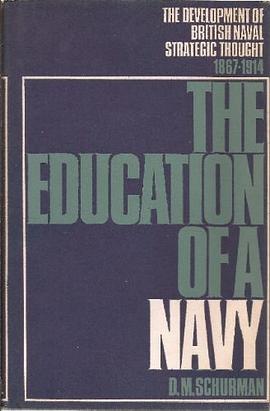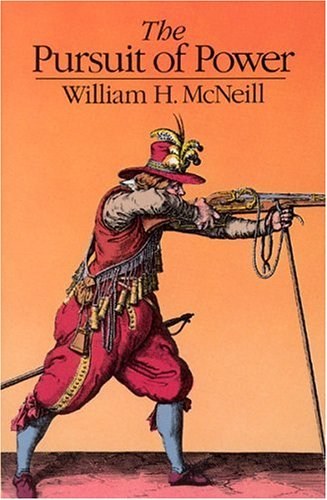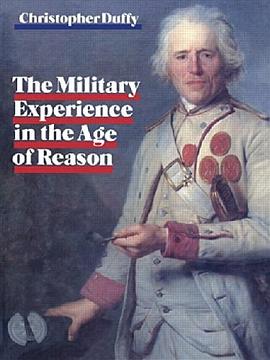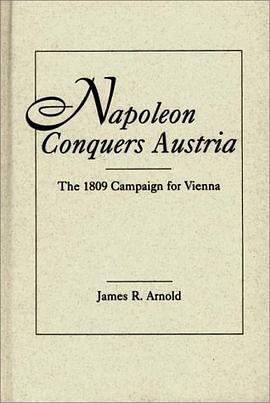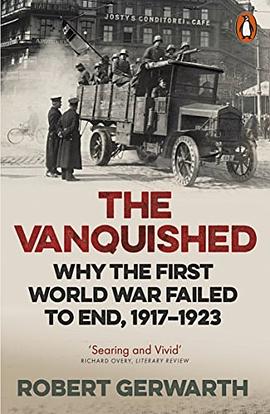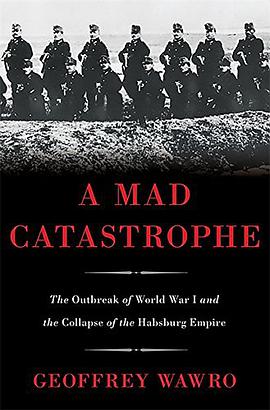戰爭
German Armored Trains Vol.I 豆瓣
作者:
Wolfgang Sawodny
Schiffer Publishing, Ltd.
2004
- 1
The Audit of War 豆瓣
作者:
Correlli Barnett
Macmillan
1986
- 3
Far-flung Lines 豆瓣
作者:
Kennedy, Greg; Neilson, Keith;
1996
- 11
Far Flung Lines shows how the British Empire used its maritime supremacy to construct and maintain a worldwide defence system that would protect its vital imperial interests. By combining a number of different historical threads - particularly imperial history, naval history and military history - Neilson and Kennedy rebut the idea that British defence policy in the late nineteenth and early twentieth centuries was primarily concerned with maintaining the balance of power in Europe.
Understanding Modern Warfare 豆瓣
作者:
David Jordan
/
James D. Kiras
…
Cambridge University Press
2008
- 11
A major new study of the theory and practice of warfare in the twentieth and twenty-first centuries. Using relevant examples from recent history, this book provides a complete introduction to the issues, ideas, concepts, context and vocabulary of modern warfare. The expert team of authors explore the conduct of war across land, sea, air and space in addition to addressing key issues relating to contemporary strategy, weapons of mass destruction and irregular warfare, including insurgency, terrorism and civil war. They provide an incisive and structured grounding in military theory and argue for the importance of understanding warfare within the joint (inter-service) context and as an evolutionary rather than a revolutionary phenomenon. By providing the tools required to truly understand contemporary military doctrine this accessible survey will be an invaluable resource for any student of military history or international relations as well as for military professionals.
The Evolution of Strategy 豆瓣
作者:
Beatrice Heuser
Cambridge University Press
2010
- 11
Is there a 'Western way of war' which pursues battles of annihilation and single-minded military victory? Is warfare on a path to ever greater destructive force? This magisterial 2010 account answers these questions by tracing the history of Western thinking about strategy - the employment of military force as a political instrument - from antiquity to the present day. Assessing sources from Vegetius to contemporary America, and with a particular focus on strategy since the Napoleonic Wars, Beatrice Heuser explores the evolution of strategic thought, the social institutions, norms and patterns of behaviour within which it operates, the policies that guide it and the cultures that influence it. Ranging across technology and warfare, total warfare and small wars as well as land, sea, air and nuclear warfare, she demonstrates that warfare and strategic thinking have fluctuated wildly in their aims, intensity, limitations and excesses over the past two millennia.
Clausewitz and the State 豆瓣
作者:
Peter Paret
Princeton University Press
2007
- 3
Originally published in 1976, "Clausewitz and the State" presents a comprehensive analysis of one of the significant thinkers of modern Europe. Peter Paret combines social and military history and psychological interpretation with a study of Clausewitz's military theories and of his unduly neglected historical and political writing. This timely new edition includes a preface which allows Paret to recount the past thirty years of discussion on Clausewitz and respond to critics. A companion volume to "Clausewitz's On War", this book is indispensable to anyone interested in Clausewitz and his theories, and their proper historical context.
England in the Seven Years' War 豆瓣
作者:
Corbett, Julian Stafford
Cambridge University Press
2010
- 11
Sir Julian Corbett (1854-1922) was an eminent British naval historian who focused on the analysis of historic naval strategy. After graduating from Trinity College, Cambridge, in 1876 Corbett practised as a barrister until 1882, when he turned to historical writing. He was appointed Lecturer in History to the Royal Naval College, Greenwich, in 1903, and was consulted on naval reforms during the First World War. These volumes, first published in 1907, contain Corbett's detailed analysis of naval warfare during the Seven Years' War (1756-1763). Focusing on the strategy of the British navy, Corbett recounts chronologically the major actions of the war, analysing in detail fleet movements and naval tactics in their political and diplomatic context. These volumes were the first scholarly work on this subject, and provide valuable information concerning the development of English naval strategy during this formative period. Volume 1 covers 1754-1759.
Maritime Strategy And The Balance Of Power 豆瓣
作者:
John B Hattendorf
/
Robert S Jordand
Palgrave Macmillan
1989
- 6
Education of a Navy 豆瓣
作者:
D.M. Schurman
Littlehampton Book Services Ltd
1965
- 9
The Pursuit of Power 豆瓣 Goodreads
The Pursuit of Power: Technology, Armed Force and Society since AD 1000
作者:
William H. McNeill
University Of Chicago Press
1984
- 9
In this magnificent synthesis of military, technological, and social history, William H. McNeill explores a whole millennium of human upheaval and traces the path by which we have arrived at the frightening dilemmas that now confront us. McNeill moves with equal mastery from the crossbow--banned by the Church in 1139 as too lethal for Christians to use against one another--to the nuclear missile, from the sociological consequences of drill in the seventeenth century to the emergence of the military-industrial complex in the twentieth. His central argument is that a commercial transformation of world society in the eleventh century caused military activity to respond increasingly to market forces as well as to the commands of rulers. Only in our own time, suggests McNeill, are command economies replacing the market control of large-scale human effort. The Pursuit of Power does not solve the problems of the present, but its discoveries, hypotheses, and sheer breadth of learning do offer a perspective on our current fears and, as McNeill hopes, "a ground for wiser action."
"No summary can do justice to McNeill's intricate, encyclopedic treatment. . . . McNeill's erudition is stunning, as he moves easily from European to Chinese and Islamic cultures and from military and technological to socio-economic and political developments. The result is a grand synthesis of sweeping proportions and interdisciplinary character that tells us almost as much about the history of butter as the history of guns. . . . McNeill's larger accomplishment is to remind us that all humankind has a shared past and, particularly with regard to its choice of weapons and warfare, a shared stake in the future."--Stuart Rochester, "Washington Post Book World "
"Mr. McNeill's comprehensiveness and sensitivity do for the reader what Henry James said that Turgenev's conversation did for him: they suggest 'all sorts of valuable things.' This narrative of rationality applied to irrational purposes and of ingenuity cannibalizing itself is a work of clarity, which delineates mysteries. The greatest of them, to my mind, is why human beings have never learned to cherish their own species."--Naomi Bliven, "The New Yorker
"
"No summary can do justice to McNeill's intricate, encyclopedic treatment. . . . McNeill's erudition is stunning, as he moves easily from European to Chinese and Islamic cultures and from military and technological to socio-economic and political developments. The result is a grand synthesis of sweeping proportions and interdisciplinary character that tells us almost as much about the history of butter as the history of guns. . . . McNeill's larger accomplishment is to remind us that all humankind has a shared past and, particularly with regard to its choice of weapons and warfare, a shared stake in the future."--Stuart Rochester, "Washington Post Book World "
"Mr. McNeill's comprehensiveness and sensitivity do for the reader what Henry James said that Turgenev's conversation did for him: they suggest 'all sorts of valuable things.' This narrative of rationality applied to irrational purposes and of ingenuity cannibalizing itself is a work of clarity, which delineates mysteries. The greatest of them, to my mind, is why human beings have never learned to cherish their own species."--Naomi Bliven, "The New Yorker
"
The Men Who Lost America 豆瓣
作者:
Andrew Jackson O'Shaughnessy
Yale University Press
2014
- 9
Currency and Finance in Time of War 豆瓣
作者:
F. Y. Edgeworth
Forgotten Books
2017
- 5
Military Experience in the Age of Reason 豆瓣
作者:
Christopher Duffy
Routledge
1987
Napoleon Conquers Austria 豆瓣
作者:
James R. Arnold
Praeger Publishers
1995
- 7
The Vanquished 豆瓣
作者:
Robert Gerwarth
Penguin
2017
- 6
A Mad Catastrophe 豆瓣
作者:
Geoffrey Wawro
Basic Books
2014
- 4
The Austro-Hungarian army that marched east and south to confront the Russians and Serbs in the opening campaigns of World War I had a glorious past but a pitiful present. Speaking a mystifying array of languages and lugging outdated weapons, the Austrian troops were hopelessly unprepared for the industrialized warfare that would shortly consume Europe.
As prizewinning historian Geoffrey Wawro explains in A Mad Catastrophe, the doomed Austrian conscripts were an unfortunate microcosm of the Austro-Hungarian Empire itself—both equally ripe for destruction. After the assassination of the Austrian Archduke Franz Ferdinand in June 1914, Germany goaded the Empire into a war with Russia and Serbia. With the Germans massing their forces in the west to engage the French and the British, everything—the course of the war and the fate of empires and alliances from Constantinople to London—hinged on the Habsburgs’ ability to crush Serbia and keep the Russians at bay. However, Austria-Hungary had been rotting from within for years, hollowed out by repression, cynicism, and corruption at the highest levels. Commanded by a dying emperor, Franz Joseph I, and a querulous celebrity general, Conrad von Hötzendorf, the Austro-Hungarians managed to bungle everything: their ultimatum to the Serbs, their declarations of war, their mobilization, and the pivotal battles in Galicia and Serbia. By the end of 1914, the Habsburg army lay in ruins and the outcome of the war seemed all but decided.
Drawing on deep archival research, Wawro charts the decline of the Empire before the war and reconstructs the great battles in the east and the Balkans in thrilling and tragic detail. A Mad Catastrophe is a riveting account of a neglected face of World War I, revealing how a once-mighty empire collapsed in the trenches of Serbia and the Eastern Front, changing the course of European history.
As prizewinning historian Geoffrey Wawro explains in A Mad Catastrophe, the doomed Austrian conscripts were an unfortunate microcosm of the Austro-Hungarian Empire itself—both equally ripe for destruction. After the assassination of the Austrian Archduke Franz Ferdinand in June 1914, Germany goaded the Empire into a war with Russia and Serbia. With the Germans massing their forces in the west to engage the French and the British, everything—the course of the war and the fate of empires and alliances from Constantinople to London—hinged on the Habsburgs’ ability to crush Serbia and keep the Russians at bay. However, Austria-Hungary had been rotting from within for years, hollowed out by repression, cynicism, and corruption at the highest levels. Commanded by a dying emperor, Franz Joseph I, and a querulous celebrity general, Conrad von Hötzendorf, the Austro-Hungarians managed to bungle everything: their ultimatum to the Serbs, their declarations of war, their mobilization, and the pivotal battles in Galicia and Serbia. By the end of 1914, the Habsburg army lay in ruins and the outcome of the war seemed all but decided.
Drawing on deep archival research, Wawro charts the decline of the Empire before the war and reconstructs the great battles in the east and the Balkans in thrilling and tragic detail. A Mad Catastrophe is a riveting account of a neglected face of World War I, revealing how a once-mighty empire collapsed in the trenches of Serbia and the Eastern Front, changing the course of European history.

